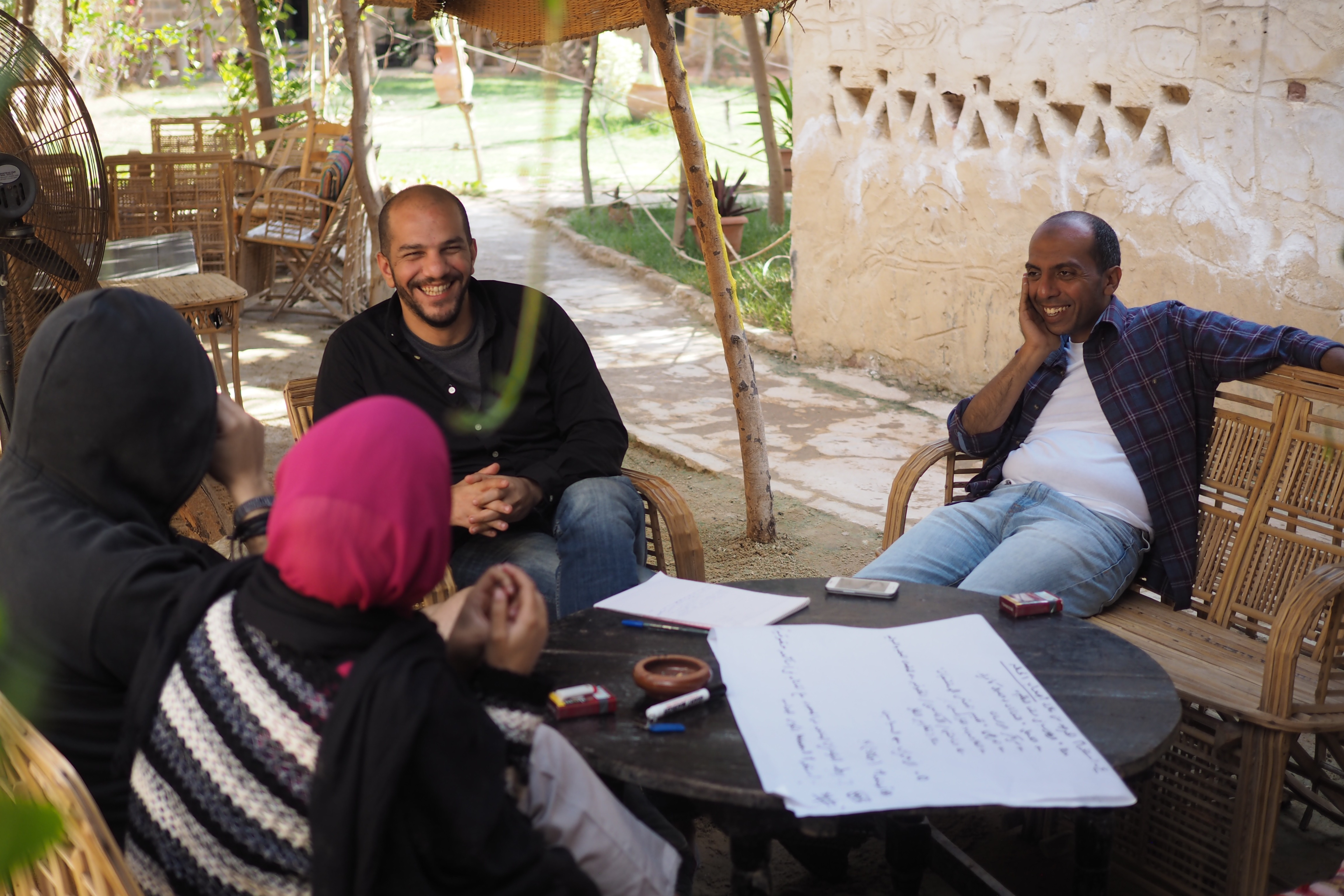
Are you doing research that “decodes” how economic policy marginalizes particular groups? You might be trying to uncover the unequal burden of unpaid care, or show how a green energy project affects nearby communities, or document the discriminatory impacts of austerity, or reform an exclusionary social protection program. From climate change to the cost of living crisis, if you’re trying to surface how the concentration of political and economic power harms people’s rights and fuels inequality, we want to hear from you!
Why are we looking to collaborate?
At CESR, we believe that the scale of change we seek cannot happen without a critical mass of groups working toward it. The knowledge and skills to engage critically with economic policy debates shouldn’t be the exclusive domain of economists, lawyers, and other experts. But, specialization and technicalization has made it difficult to spread these across movements. Little human rights research includes root cause analysis to “follow the money”, for example, while economic justice advocacy doesn’t often see people’s concerns in human rights terms.
Decoding Injustice is a powerful way to advance economic, environmental, and social justice through research. Drawing on different disciplines, it sheds new light on how economic policies harm people’s human rights. It helps produce evidence to support demands that those in power live up to their promises, and right the wrongs of historic, systemic oppression.
Collaborating supports our partners to use Decoding Injustice in projects that seek to leverage rights to transform the economy. It also gives us invaluable insights into local and national struggles against economic injustices. This, in turn, helps us learn how we can best leverage our positionality as an international organization to be a strategic ally that amplifies collective power.
You can read more about the critical role collaboration plays in advancing our mission here.

What would collaboration involve?
Collaboration involves working with us on a project over a 6 - 9 month period in 2023. We describe this type of work as “accompanying” meaning that we walk alongside one another on a path towards a collective goal. In seeing our work this way, our goal is to disrupt hierarchical models of capacity building and instead foster collective wisdom. What this looks like, in practice, varies, so that together we can carefully tailor it to the specific priorities of your project in your particular context.
You might be interested in collaborating with us if…
-
You’re in the process of putting together a research plan and want to learn more about different research methods and approaches that could strengthen your work.
-
You’re designing a measurement tool and weighing up the strategic value of different indicators and benchmarks.
-
You want to incorporate a human rights lens into your budget analysis work.
-
You’re developing an advocacy strategy and are considering how to present evidence in the most compelling way possible to different audiences.
The collaboration should produce a research output. But it can take any shape or form. Its aim should be to support communities to mobilize for change on the local, national, or international level. It could target actors in the climate justice, development, economic governance, or human rights spaces, or elsewhere… We are open to new and creative ideas!
We are pleased to be able to provide our staff time and to cover agreed costs for joint activities, as well as to contribute up to EUR 5,000 towards our partner’s other research expenses (such as subscription fees for data collection; translation; staff or consultants’ time, etc.).
You can read more about what to expect from collaborating with us here.
Who are we looking to collaborate with?
We’re looking for 2-3 partners to collaborate with in 2023. Deepening relationships with actors we’re less proximate to is a strategic priority for us. That’s why we’ve put out this open call for expressions of interest. For this call, we’re prioritizing groups:
- Working with communities who are discriminated against—and deprived of their rights—due to their identity or social status, including women, indigenous peoples, minorities, persons with disabilities, and others.
- Focusing on key policy trends that have a discriminatory impact on their rights, including: inequitable tax policies and development financing arrangements; underfunding and commercialization of public services; unsustainable and exclusionary land and natural resources management; and development models that are exacerbating the climate crisis.
- Working in English, Spanish, or Arabic.
You can read more about the profiles of partners we work with here.
I’m interested! What next?
Please complete this short form by November 18, 2022. This will help us learn a bit more about your organization and your project idea. If you have any questions or clarifications, or if you’d like to learn more about CESR and our partnership model, please don’t hesitate to reach out to melbadrawi@cesr.org with the subject line as: Inquiry about Collaborative Research.
We’re aiming to review the expressions of interest we receive by early December 2022. So please expect to hear from us by then. We may ask to arrange a call to scope out the potential collaboration in more detail.
We have the resources to support 2 - 3 collaborations in 2023. So, unfortunately, we won’t be able to work with everyone we’d like to. The type of partner, the issue they’re working on, where they’re located, and the potential for mutual learning from this collaboration that we can share out more broadly will help us decide what to prioritize. We want to make sure that we’re a good fit and can add value to the project, given the capacity we have. Even if we’re not able to collaborate this time, we’d love to keep the conversation going! We have our bigger area of work on sharing human rights tools and accompanying partners in different ways to use them to map out, deeply understand, and inspire action against the root causes of economic and social injustice, in their local and national contexts. If you would like to know more and stay in the loop about our Decoding Injustice work, please sign up here.